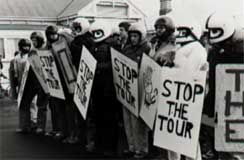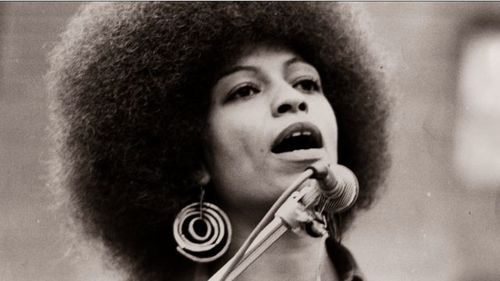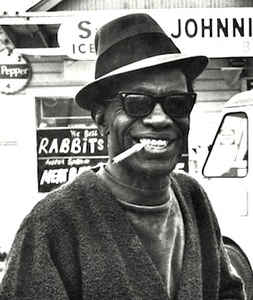BLACK POLITICS AND CULTURE
Angela Davis: Portrait of a revolutionary
The
Blues According to Lightnin' Hopkins ||
Dry
Wood |
Freedom
Railway |
Hot
Pepper |
Tasting
Freedom |
The Sun's Gonna Shine |
OTHER
MATERIAL

|
ANGLEA DAVIS: PORTRAIT OF A REVOLUTIONARY (1972)
Writer and intellectual Angela Davis was one of the most outspoken activists of the 1960s and 1970s. A professor of philosophy at UCLA, Davis was also a communist, a Black Panther and a vocal critic of the U.S. government as well as sexism, racism and war. This documentary, directed by Yolande DuLuart, one of Davis' former students, shows Davis speaking at public rallies and interacting with her students. The film also covers the controversial arrest of Davis in 1970.

THE
BLUES ACCORDING TO LIGHTNIN' HOPKINS (1968,
Colour)
In his own words and his 'own' music, Texas bluesman Lightnin' Hopkins reveals
the inspiration for his blues.

DRY
WOOD (1973,
Colour)
This is the first part of a two-part documentary on the life and music of the
French-speaking blacks in south-west Louisiana's Cajun country.
FREEDOM
RAILWAY (1974, Colour)
Felix Greene spent two months filming the construction of this remarkable railway
that links Dar-es-Salaam on the Indian Ocean to Kapiri Mposhi in the heart
of the Zambian copperbelt.
  
HOT
PEPPER (1973,
Colour)
This is the second part of Les Blank's Cajun documentary and plunges the viewer
deep into the music of Clifton Chenier and its sources in urban and rural Louisiana.
THE
SUN'S GONNA SHINE (1968,
Colour)
A tribute to the great Texas bluesman Lightnin' Hopkins.
TASTING
FREEDOM (
1994, Colour)
This film documents
the struggles of asylum seekers in Britain for the recognition of their
basic human rights. In doing so it also investigates abuses on asylum seekers
and refugees in detention. The film contains unprecedented interviews with
previously imprisoned asylum seekers.
OTHER
MATERIAL
We carry a wide variety of material that explores and celebrates black politics
and culture, from American radicals of the 60s like Angela Davis, to political
struggles in Southern Africa, to jazz and reggae music festivals.
We also cover aspects of the Black experience in Britain - particularly asylum
seekers and refugees, and the aboriginal experience in Australia.
|

